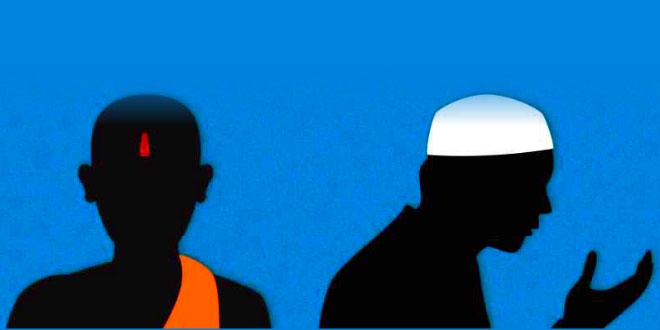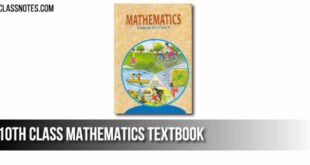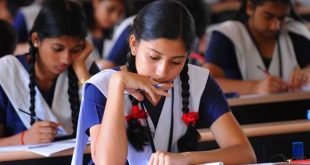Question: What do you mean by sexual division of labour?
Answer: A system in which all work inside the home is either done by the women of the family, or organised by them through the domestic helpers.
Question: What are feminist movements?
Answer: The movements which aimed at equality of men and women in all spheres of life.
Question: Define sex ratio.
Answer: Number of girl children per thousand boys.
Question: What is sex ratio of India?
Answer: 940 (Census 2011).
Question: Name any two countries in which the participation of woman in public life is very high.
Answer: Sweden and Norway
Question: What is patriarchal society ?
Answer: This is a system that values men more and gives them power over women.
Question: What is literacy rate among men and women in India?
Answer: Men = 76%
Women = 65.46%
Question: What is Equal Wages Act?
Answer: According to this Act equal wages should be paid to equal work.
Question: Mention any two basis of social division in India.
Answer:
- Religion
- Community
Question: Who said, “Religion can never be separated from politics?”
Answer: Gandhiji
Question: What are family laws?
Answer: Those laws that deal with family related matters such as marriage, divorce, adoption, inheritance etc. In our country, different family law apply to followers of different religions.
Question: What were Gandhiji’s views regarding religion and politics?
Answer: Gandhiji used to say that religion can never be separated from politics. What he meant by religion was not any particular religion like Hinduism or Islam but moral values that form the basis of all religions. He believed that politics must be guided by ethics drawn from religions.
Question: ‘The most common expression of communalism is in every-day beliefs’. Explain.
Answer: These routinely involves religious prejudices, stereotypes of religious communities and belief in the superiority of one’s religion over other religions.
Question: ‘Political mobilization on religious line is frequent form of communalism’. Explain.
Answer: Political mobilization on communal lines involves the use of sacred symbols, religious leaders, emotional appeal and plain fear in order to bring the followers of one religion together in the political arena. In electoral politics this often involves special appeal to the interests or emotions of voters of one religion in preference to others.
Question: What is a secular state?
Answer: A state in which the constitution provides to all individuals and communities freedom to profess, practice and propogate any religion, or not to follow any.
Question: Mention any two provisions of Indian Constitution which makes India a secular state.
Answer:
- There is no official religion for the Indian state,
- The Constitution prohibits discrimination on grounds of religion.
Question: Name any four social reformers who advocated and worked to establish a society in which caste inequalities are absent.
Answer: Jyotirao Phule, Gandhiji, B.R. Ambedkar and Periyar Ramaswami.
Question: Suggest any two ways to break caste hierarchy.
Answer:
- Spread of education
- Urbanization
Question: Write the appropriate term:
- A person who says that religion is the principal basis of community.
- A person who believes in equal rights and opportunities for women and men.
Answer:
-
Communalist
- Feminist
Question: What is the population percentage of Scheduled castes according to 2001 census?
Answer: 16.2%.
Question: What is communalism?
Answer: It is a situation when a particular community tries to promote its own interests at the cost of other communities.
Question: What is the basis of communal politics?
Answer: Communal politics is based on the idea that religion is the principal basis of social community.
Question: Mention any one provision in the Indian Constitution which makes India a secular state.
Answer: Under the Right to Freedom of Religion all citizens are free to profess, practice and propagate any religion, or not to follow any.
Question: Define family laws?
Answer: Those laws deal with family related matters such as marriage, divorce, adoption, inheritance, different family laws apply to followers of different religions.
Question: Define occupational mobility?
Answer: Shift from one occupation to another, usually when a new generation takes up occupations other than those practised by their ancestors.
Question: What is meant by caste hierarchy?
Answer: A ladder like formation in which all the caste groups are placed from the ‘highest’ to the ‘lowest’ caste.
Question: What does gender division refer to?
Answer: Gender division refers to the unequal roles assigned to men and women by the society.
Question: Name 2 countries where participation of women in public life is very high.
Answer: Sweden and Norway are the 2 countries where participation of women in public life is very high
Question: Mention 2 essential characteristic of a secular state.
Answer: A secular state allows its citizens to practise and propagate any religion or not follow any religion at all. The constitution of the state prohibits any discrimination on the basis of religion
Question: What is meant by caste hierarchy?
Answer: Caste hierarchy is a grading of groups from the highest to the lowest castes , for example, the Brahmins to the untouchables.
 Class Notes NCERT Solutions for CBSE Students
Class Notes NCERT Solutions for CBSE Students





